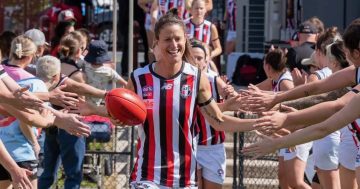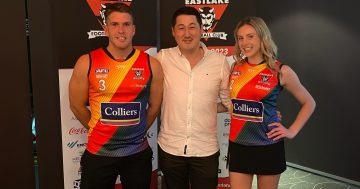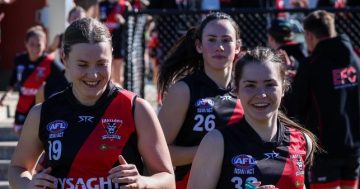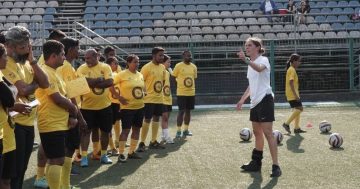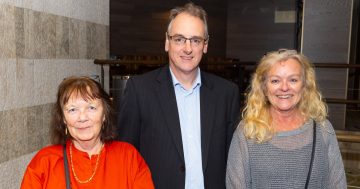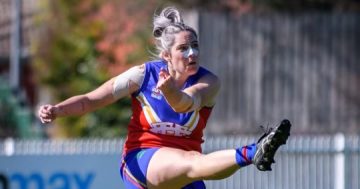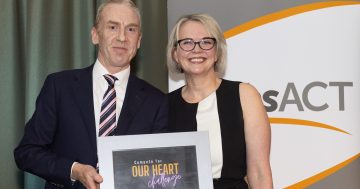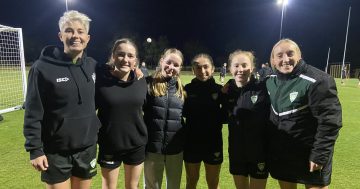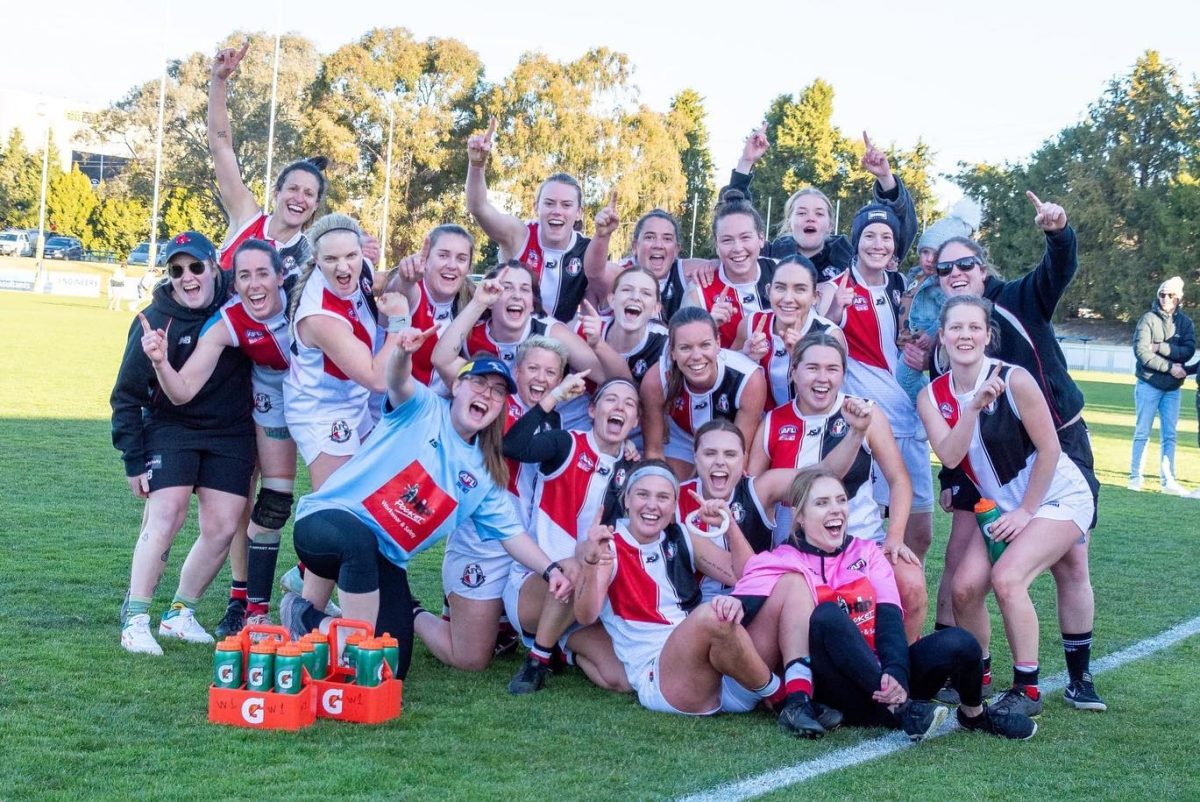
Ainslie Football Club first grade women’s premiers 2023. Photo: Ainslie Football Club.
When Dani Curcio made her first grade debut as a 15-year-old for Ainslie in 2002, the club was battling to put a women’s team on the park each weekend.
At times, only two to five players turned up to training in winter.
It was a struggle to say the least.
“We forfeited a number of games because we couldn’t get the minimum 14 players on the field,” Dani said.
Training took place on the field across the road from the prized Alan Ray Oval – an oval reserved for male players. Support for female players was limited.
In 2021, senior players Zoe Skyrianos and Allyson Flynn presented a submission to the board seeking equality for the club’s AFL women.
That proposition was accepted and resulted in a seismic shift in the fortunes of female footballers at Ainslie.
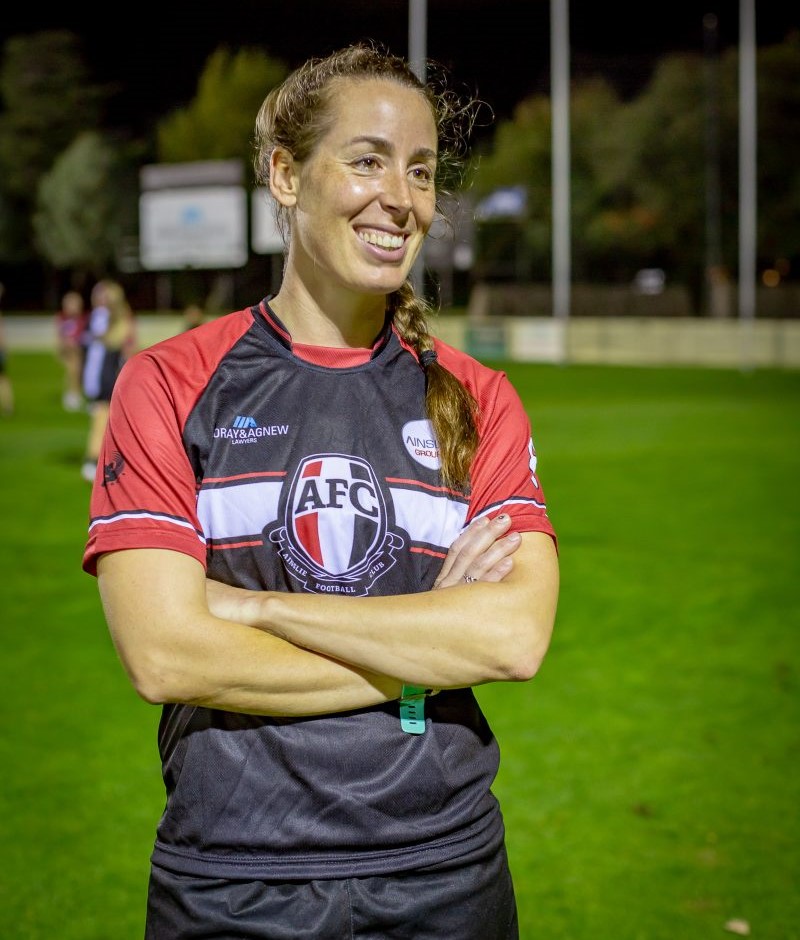
Dani Curcio is the most capped first grade player in the history of Ainslie Football Club. Photo: File.
In 2023, Ainslie Football Club provided equal resourcing across its male and female teams – the first AFL club in Australia to do so.
This year’s salary cap for the Ainslie women’s players doubled to $40,000. They also had equal access to physiotherapists, support staff and facilities, including dedicated dressing rooms.
Plus, the women’s team now trains on Alan Ray Oval.
“There’s been a 100 per cent difference in support provided to the women’s players,” Dani said.
“We have our own change rooms and access to the main ground. The support from the board has been great, from the president down, they all come to our games.”
The changes have seen a significant increase in the number of registered players, growing from 74 in 2022 to 117 in 2023.
Ainslie now fields a third team in the women’s senior leagues as well as six junior girls’ teams and 16 mixed boys’ and girls’ junior teams.
“It’s been great to see how the juniors and young girl players have been developed. That’s why this club has been a big part of my life,” Dani said.
In the past year, five Ainslie players have been drafted into the AFLW.
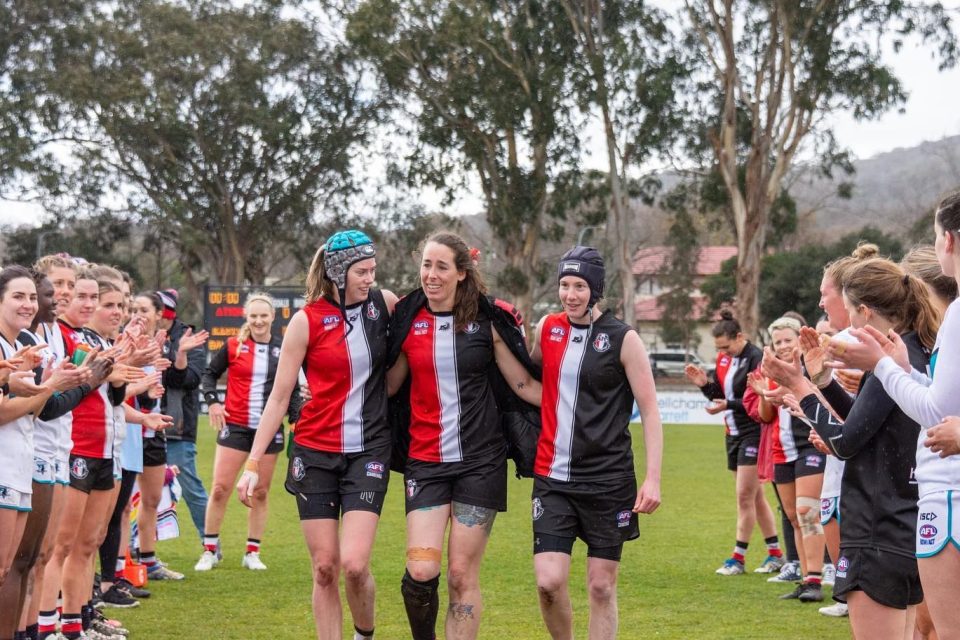
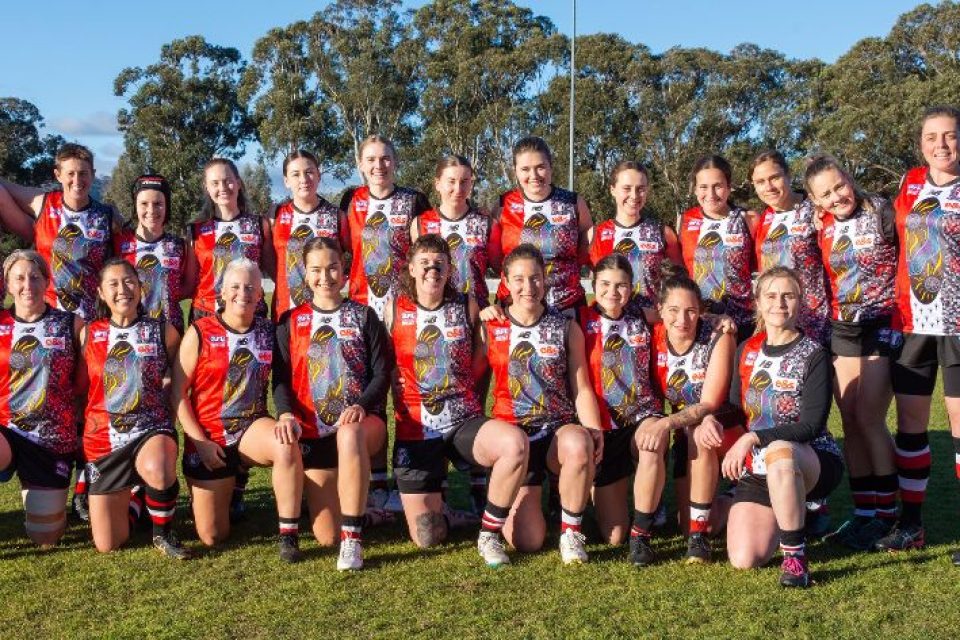
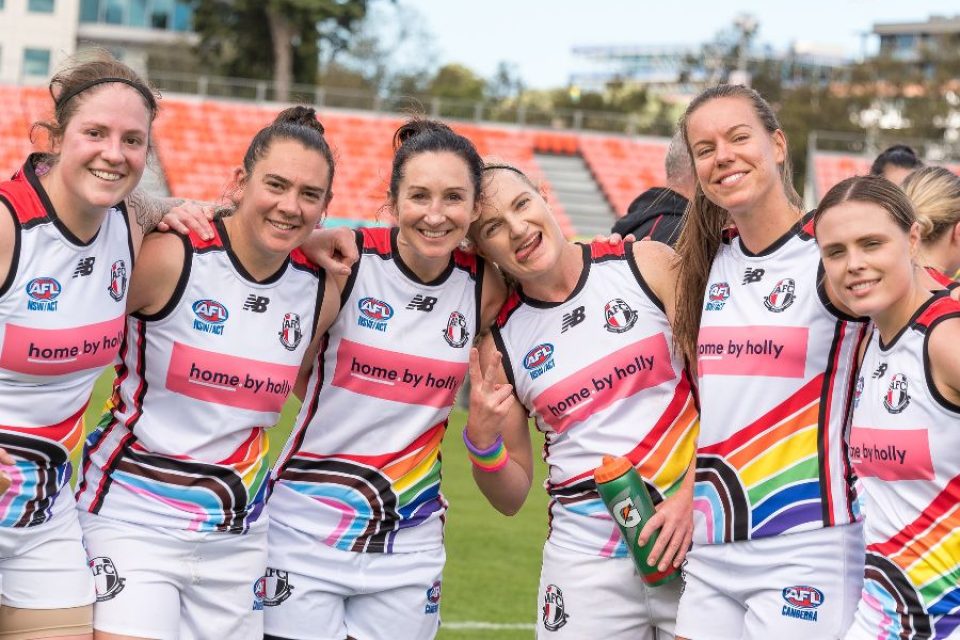
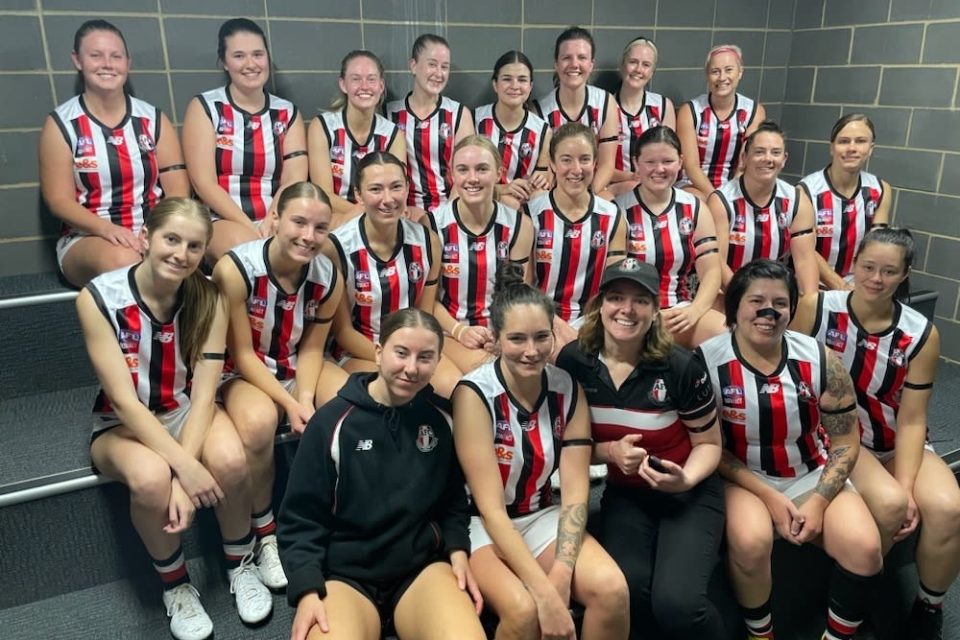
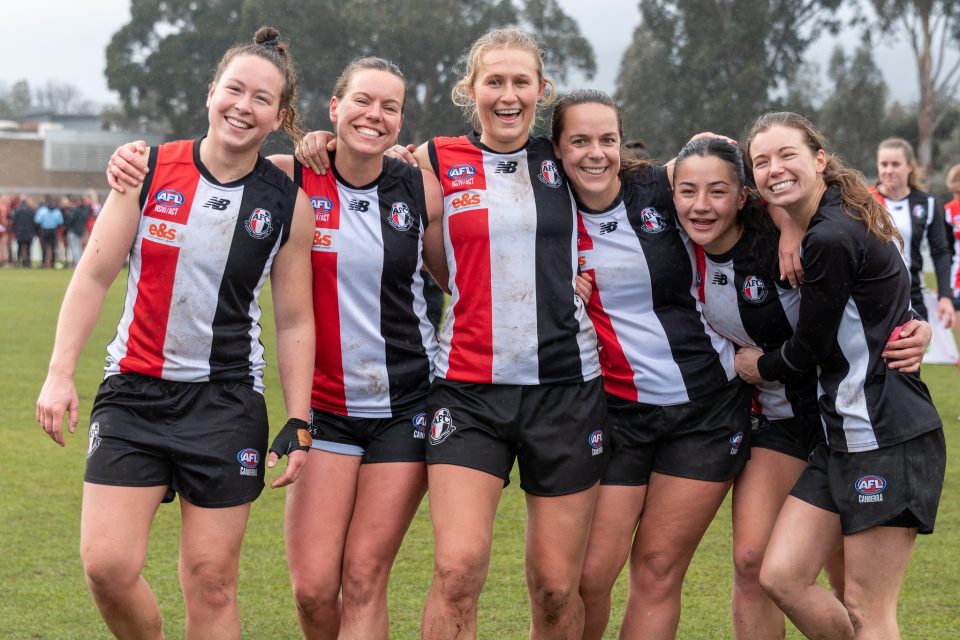
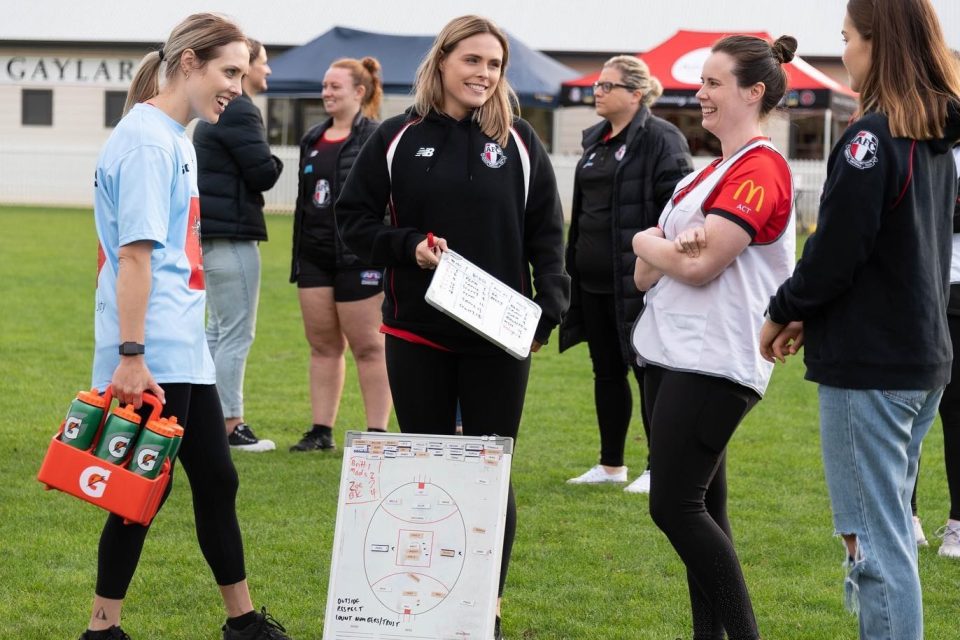
Ainslie Football Club president Lee Phillips said the club felt it had been able to make some needed change with gender disparity in sporting codes.
“We recognise that gender equality is a challenge in many sports and we’re hoping that by leading by example we will shape opportunities for women in sport more generally,” he said.
The progression off the field has been just as important to the ideology of the Ainslie club with its strengthened connection to the community.
The club was this year recognised for its promotion of equality when it won the Contribution to Sport, Community Development and Wellbeing award at the recent ClubsACT presentation night. Clearly, a fitting tribute to the club’s work.












